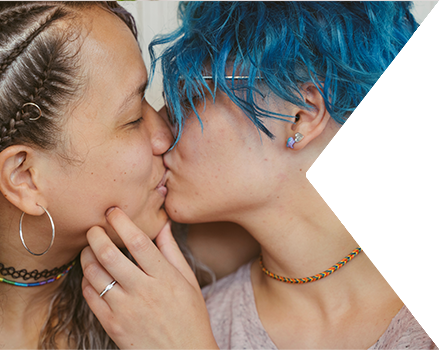Green Flags » Know Your Green Flags » Slang Terms
IYKYK: Relationship Slang 101
In today’s always-changing digital world, it sometimes feels like there’s a secret language. Whether you’re trying to decode a text message or figure out the latest slang term on social media, we’re here to help! Let’s break down the lingo to help you stay in the loop.
relationship slang terms:
In the world of texting and online chats, “1437” is a numerical way to say “I love you forever.” It’s like a secret code to express deep affection to someone special. Each word in the phrase “I love you forever” corresponds to a number in 1437. For example, “I” has only one letter, so it is represented by 1. “Love” has four letters, “you” has three letters, and “forever” has seven letters, so together, the words become the number 1437.
Remember, while this may seem cute and fun, it’s important to make sure your feelings align with the meaning behind these words. Open and honest communication with your partner are green flags and are essential to ensure mutual understanding and connection in relationships.
“Bae” is an affectionate term that stands for “before anyone else.” It is used to refer to a romantic partner or someone you deeply care about. It is a way to show admiration and love for someone special in your life.
Remember, in any relationship, it’s a green flag to communicate openly, respect each other’s boundaries, and prioritize mutual happiness and well-being.
In an unhealthy relationship one person may try to blame the other for something they did. This tactic, called blame-shifting, is used to take the spotlight off of them and create a fake story around the other person. People who blame-shift take control of the argument by making it seem like the other person is responsible. This is a red flag. Being blamed for everything in a relationship is often a way to gain control over their partner and can lead to severe emotional stress in a relationship. Emotional abuse and blame-shifting go hand-in-hand.
However, recognizing these signs can empower you to take positive steps towards building healthier connections. There’s hope in understanding and addressing these issues.
A “body count” basically means the number of people someone has hooked up with or had sexual experiences with. People might ask about it or talk about it casually, but it’s important to remember that what really matters in a relationship is open communication, mutual respect, and emotional connection.
Your worth isn’t defined by a number, but by the quality of the relationships you build and how you treat others. It’s important to focus on building meaningful connections and prioritizing emotional well-being rather than solely focusing on the number of sexual partners. You also have the right to set boundaries, so you don’t have to discuss things you don’t want to. You get to determine how much you want to share with your partner. Setting boundaries are a green flag.
Honoring and respecting your partner’s feelings is green flag behavior.
Have you ever heard any of the following phrases?
“You’re crazy!”
“You’re overreacting.”
“I never said that. You’re making that up.”
If so, there’s a chance you may have experienced gaslighting. Gaslighting is a common type of abuse that happens in unhealthy relationships. It’s used to make victims second-guess or doubt their own thoughts and feelings.
The term “gaslight” comes from a 1938 play, called “Gas Light”. It’s about a husband trying to make his wife believe that she is mentally ill. He continues to lower the lights in their house but denies it being darker when his wife asks, which leads her to doubt her own mind.
Common Signs of Gaslighting
When someone is being gaslighted, they are fed false information, often and on purpose, that leads them to question what they know to be true. Over time, the manipulations can grow more complex and effective.
Some common signs of being gaslighted include:
- Doubting or second-guessing yourself
- Your partner makes you feel out of your mind, sensitive, dramatic, or wrong about things
- Feeling confused, depressed, or isolated from your loved ones
- Having a gut feeling that something feels off or isn’t right
- Feeling like you have to apologize for your partner’s behavior
- Trusting your partner’s choices more than your own
Common Gaslighting Tactics
Like a lot of forms of emotional abuse, gaslighting involves a pattern of behavior. If this behavior occurs once, it could be someone having a bad day or doing something by accident. However, if you notice it happening more than once, it may be intentional. It’s important to remember that gaslighting occurs very gradually over time. The effects of these subtle, deliberate behaviors can be hard to recognize. One way to identify if this is happening is by observing behavioral patterns over time.
Common tactics include:
- Denying Reality: This is when someone questions a partner’s memory, sanity, or perception of reality. They may say things such as, “I didn’t say that. I don’t know why you would think that,” or “Are you sure about that? That never happened.”
- Minimizing: This occurs when a person belittles how someone else feels, leaving the other person feeling invalidated in their emotions. Their partner may accuse them of being “too dramatic” or “too sensitive”.
- Trivializing: Trivializing involves making the victim believe that what they communicated is insignificant and unimportant. They may say things such as, “You’re going to let something like that come between us?” or “Why do you always overreact?”
- Separation: It is not uncommon for people who gaslight to keep their partner away from their friends and family. Partners may claim they know other people are saying negative things about the victim. They may say things like, “I don’t think your family has your best interests at heart,” or “I don’t think your friend actually likes you.”
- Withholding Information: This involves someone pretending they do not understand the conversation, or refusing to listen, in order to make the other person doubt themselves. For example, they might say something along the lines of, “I don’t want to talk about this again,” or “I don’t know what you are talking about.”
If you are experiencing gaslighting in your relationship, it is not your fault. It can be difficult to recognize, but help is available. Remember, you deserve a healthy and respectful relationship where your feelings and experiences are acknowledged. If you suspect gaslighting is happening reach out to a trusted adult, counselor, or helpline. You are not alone, and support is available.
Showing someone that you care is green flag behavior. But what does it mean when someone’s affection feels like too much or too soon?
“Love bombing” is a pattern of over-the-top affectionate behavior that often happens at the beginning of a relationship. The term comes from when one party “bombs” the other with extravagant displays of adoration and attention which often feels like “too much, too soon”. It may seem like a grand, firework display of gifts and affection, but it’s really an emotional manipulation tactic to gain control and a red flag.
Common signs of “love bombing” include:
- Your partner buys you expensive gifts early on in your relationship like designer clothes, fancy jewelry, or plane tickets.
- Your partner wants to spend as much time together as possible. They don’t seem to respect your personal space or your alone time.
- They say really intense statements early on like, “You’re the greatest thing that’s ever happened to me,” or “You’re the love of my life!”
It’s important to recognize love bombing and take things slow. Setting boundaries and building respect in relationships are green flags.
The slang word “rizz” was made popular by Twitch streamer and YouTuber, Kai Cenat, but has quickly taken over TikTok and other social media platforms.
“Rizz” is short for charisma, and it refers to the ability to sweet talk or charm someone. In other words, if you’re smooth when you’re flirting with someone, you have “rizz.”
While we often appreciate a little charisma, it’s crucial to understand how the lines can be blurred when it comes to consent. The term “rizz” typically promotes positive, open expression, but it does have the possibility to be used in a negative way. A smooth talker, or someone with “rizz”, can be captivating and seemingly irresistible. Their words flow effortlessly, making us feel special and desired. However, it’s essential to differentiate between genuine charm and behaviors that cross the line. A charming person might be skilled at persuasion, but charm alone doesn’t equal consent.
Everyone has the right to set their own boundaries and make decisions that feel right for them. It’s essential to stay grounded in the principles of consent and respect. Genuine charm and healthy relationships are built on green flag behaviors such as open communication, mutual trust, and respecting boundaries.
“Simping” typically refers to when someone, often a guy, excessively shows affection, attention, or devotion to another person, usually without receiving the same level of interest or reciprocation in return.
The way-back origins of “simp” are connected to the word “simpleton”, which refers to a person without much common sense or intelligence.
The term “simping” is often used in a joking or mocking manner to describe someone who goes to great lengths to impress or please someone they are romantically interested in. Although “simping” is typically used in a playful manner, there are definitely red flags with undertones of toxic masculinity since it’s referring to men showing too much emotion.
It’s important to remember that healthy relationships involve green flags like mutual respect, equality, and genuine care, rather than one-sided efforts. Relationships should be based on mutual feelings and shared appreciation for one another.
A “situationship” refers to a relationship dynamic where two people are involved in a romantic or intimate connection, but without clear labels or commitment. It’s a grey area between being friends and being in a defined relationship, often lacking clarity or exclusivity. “Situationships” can be complicated and may involve mixed emotions or uncertainties. It’s essential to communicate openly and honestly with your partner about your expectations and feelings to ensure both parties are on the same page.
Remember, it’s a green flag to seek clarity and define what you want from a relationship.
A “sneaky link” is when you hang out with someone, usually romantically, without others knowing or finding out. It’s like having a secret meetup or doing something together on the downlow.
Just remember, it’s important to make sure everyone involved feels comfortable and is on the same page. Communication, respect, and consent are green flag behaviors and are key in any relationship.
A “sneaky link” is when you hang out with someone, usually romantically, without others knowing or finding out. It’s like having a secret meetup or doing something together on the downlow.
Just remember, it’s important to make sure everyone involved feels comfortable and is on the same page. Communication, respect, and consent are green flag behaviors and are key in any relationship.
In popular slang, “zaddy” is a term used to refer to an attractive, stylish, and often older guy who exudes confidence and charm. It might be used playfully or as a term of endearment. However, it’s important to remember that healthy relationships are built on mutual respect, equality, and genuine connection, rather than solely focusing on someone’s appearance or age.
It’s a green flag to prioritize meaningful connections based on shared values, interests, and emotional compatibility.



